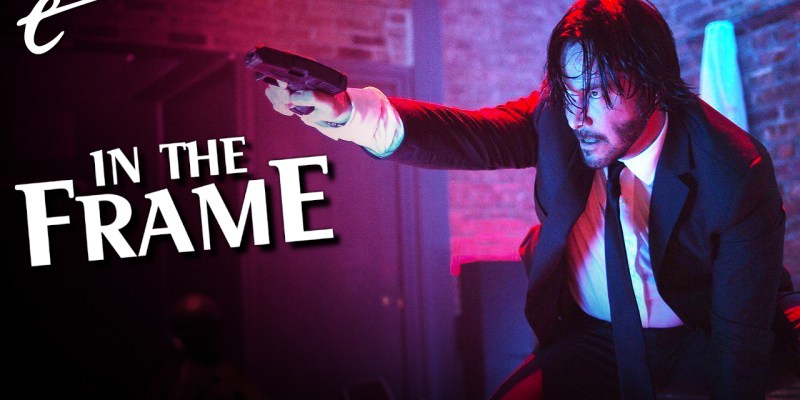Repeatedly over the John Wick movies, hotelier Winston Scott (Ian McShane) stresses the importance of protocol. “Rules,” he explains. “Without them we live with the animals.”
The world of John Wick is governed by arcane sets of rules and traditions, many of which are consistently and explicitly articulated by the characters. The first two films, for example, make it a plot point that “no business can be conducted” on the grounds of the Continental, the safe house hotels used by the world’s elite assassins. Debts are recorded with gold coins, albeit of a different sort than those that serve as currency within this underworld.
Despite the violence and brutality of the people who inhabit this strange universe underneath the one that the audience knows, there’s an emphasis on formality and ceremony. The characters use terms of art derived from Latin, such as “excommunicado,” lending these processes a sense of sophistication. Even in highly charged situations likely to result in bloodshed, characters are unflinchingly polite, couching demands and threats with words like “please,” “thank you,” and “sir.”
This could be a means of disguise. After all, the John Wick films unfold in something that is ostensibly the real world. The franchise is set against real locations. Over the course of the films, John Wick (Keanu Reeves) travels from New York to cities like Rome, Osaka, Berlin, and Paris. Much is made of the fact that Wick left this “world” behind to marry Helen (Bridget Moynahan), implying that there is a mundane world on top of this network of assassins.
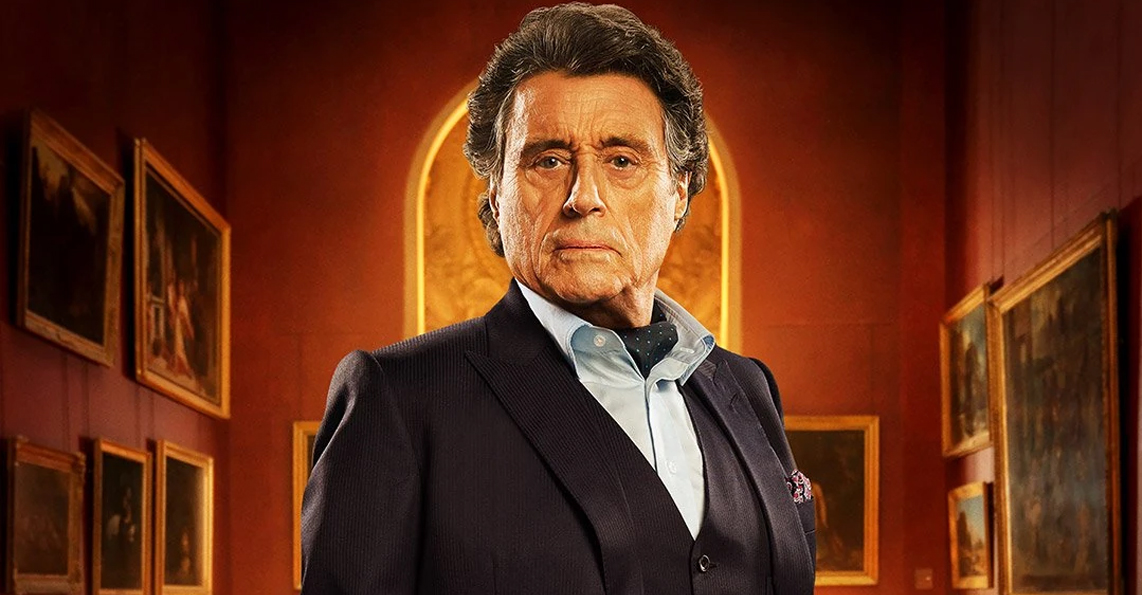
When Wick needs a weapon in the second movie, he visits a “sommelier” (Peter Serafinowicz) who communicates exclusively through wine metaphors. In the first movie, Viggo (Michael Nyqvist) uses a church as a stash house. In the third movie, the Director (Anjelica Huston) trains her assassins at her ballet school. It’s all good camouflage. These are the last places that one would expect to find assassins.
However, there’s never any sense that the two worlds meaningfully overlap. There is no mention of any press coverage or law enforcement response to Wick’s four-movie-long rampage. When a police officer (Thomas Sadoski) shows up in the original John Wick, responding to a noise complaint at Wick’s home, he is casually familiar with who Wick is and what Wick has done. “You working again?” he asks. These assassins don’t seem to work particularly hard to conceal themselves.
That said, there’s a more convincing argument that this emphasis on formality and class is just a cool aesthetic choice. It provides the John Wick franchise with a cool look and feel by juxtaposing elements that the audience doesn’t normally get to see in the same frame. Certainly, this emphasis on rules and protocols provides the series with some truly striking imagery, from Wick’s rampage through the museum at the end of Chapter 2 to his trek to the desert in Chapter 3 – Parabellum.
Still, there’s a sense that there is more to these trappings of high society than the convenience of a distinct visual identity. This emphasis on rules says something about these characters and the world that they inhabit, and one of the most compelling recurring themes of the John Wick franchise is its frustration with the hypocrisy of the people who pride themselves on their sophistication even as they operate within a world of shocking brutality.
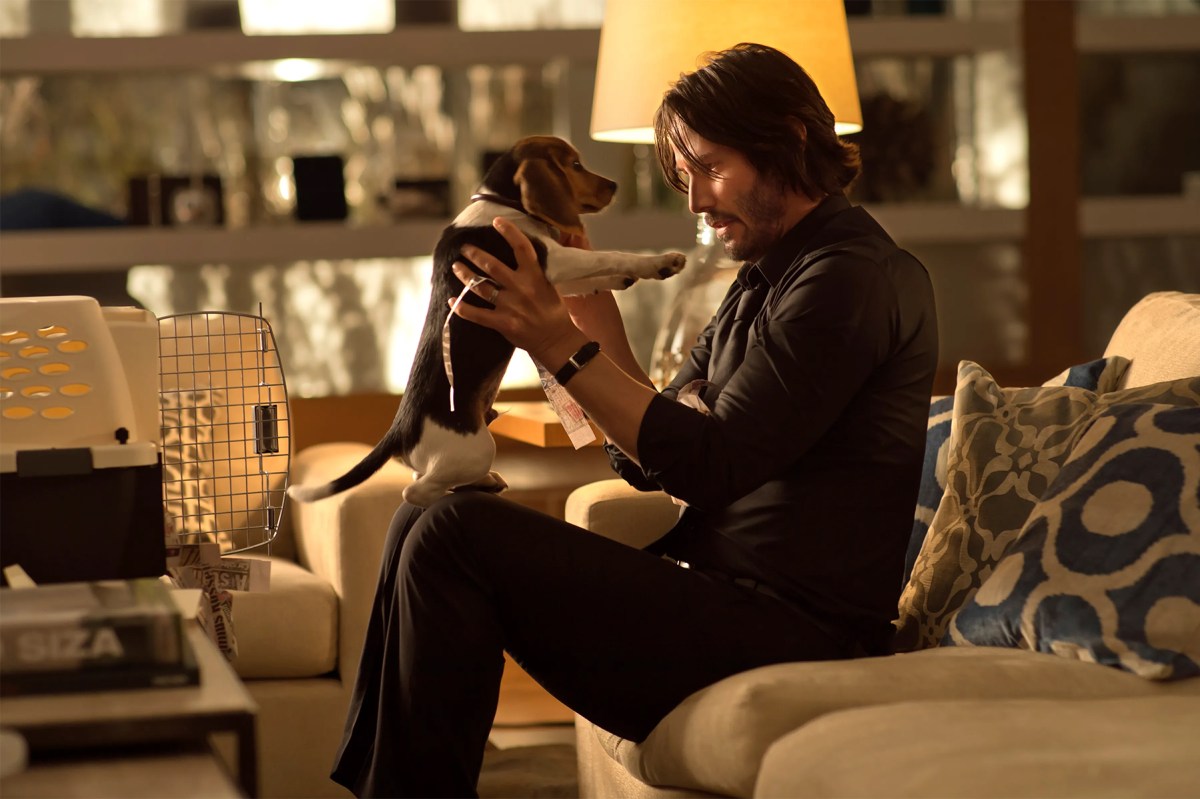
This theme is obvious from the first film. “Let us not resort to our baser instincts and handle this like civilized men,” Viggo implores Wick early in the movie, and the plot is built around the understanding that Viggo’s request is fundamentally impossible. “What happened, John?” Viggo demands towards the end of the movie, as the two come to their final confrontation. “We were professionals. Civilized.” In a moment of unflinching honesty, Wick replies, “Do I look civilized to you?”
There is something about this argument that evokes the philosopher Thomas Hobbes, who believed that “the natural condition of mankind,” without civilized society to moderate such behavior, was innately violent. Hobbes contended that “during the time men live without a common power to keep them all in awe, they are in that condition which is called war; and such a war as is of every man against every man.” It’s a somewhat wordier take on the argument Winston likes to make.
Certainly, the John Wick franchise returns time and again to the idea of “every man against every man.” Wick ends both the second and third movies of the franchise with a price on his head, exiled from polite society and as a target for every member of this community. Throughout the later John Wick films, there is an understanding that anyone could attack Wick at any moment, from a busker playing violin (Heidi Moneymaker) to the owner of a street-food sushi restaurant (Mark Dacascos).
There is something inherently bleak in this idea, in the notion that humans are so destructive and chaotic that the only way to contain their inner violence is through the imposition of strict laws and codes, and that even those protocols are inevitably warped and distorted by that innate darkness. However, as the John Wick franchise develops, it begins to add shading and nuance to this argument. It also comes to argue that these structures aren’t the solution, but the problem.
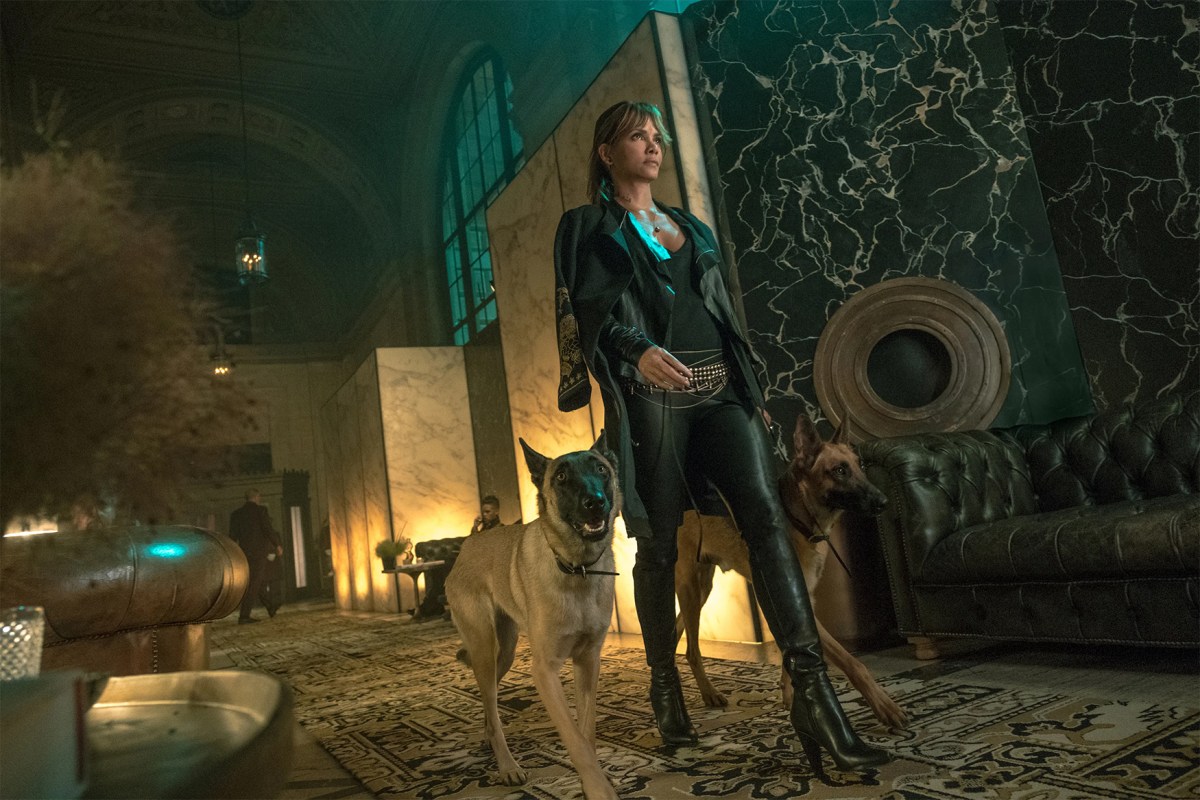
Despite Winston’s rhetorical cliché, the John Wick franchise has an abiding affinity for animals. In a very real way, John Wick left a life of murder and mayhem behind precisely so he could “live with the animals” — specifically, a puppy that he received from Helen upon her death and a dog that he rescues from a pound at the end of the first film. The animals are never the villains in these movies. Indeed, characters who keep company with animals are inevitably allies.
In Chapter 3, Wick teams up with his old friend Sofia Al-Azwar (Halle Berry), who uses two trained attack dogs. In Chapter 4, the mercenary Tracker (Shamier Anderson) finally decides to throw his lot in with Wick after Wick saves the life of his dog. In contrast, characters who are violent towards animals, such as Berrada (Jerome Flynn) in Chapter 3 or Chidi (Marko Zaror) in Chapter 4, are irredeemable monsters. The Continental might not kennel them, but animals are not so bad.
Instead, the villains of the larger John Wick franchise are the mysterious High Table, which sits in a position of authority over this world of assassins, setting the rules by which its subjects operate. Although the franchise depicts various functionaries and even members of the High Table, the High Table itself is never shown in session. It exists purely in the abstract. As Winston points out to Wick in Chapter 4, it’s a system. It’s something that Wick can’t defeat by shooting people.
As the franchise progresses, it becomes increasingly clear that these rules and protocols don’t exist to protect people, but to trap them. The civility that Viggo invokes in his conversations with Wick is just a cage that keeps people in their place. Throughout the franchise, higher status figures like Santino D’Antonio (Riccardo Scamarcio) in Chapter 2 or the Elder (Saïd Taghmaoui) in Chapter 3 use the rules to force Wick to do their bidding, promising him an escape that conveniently never arrives.
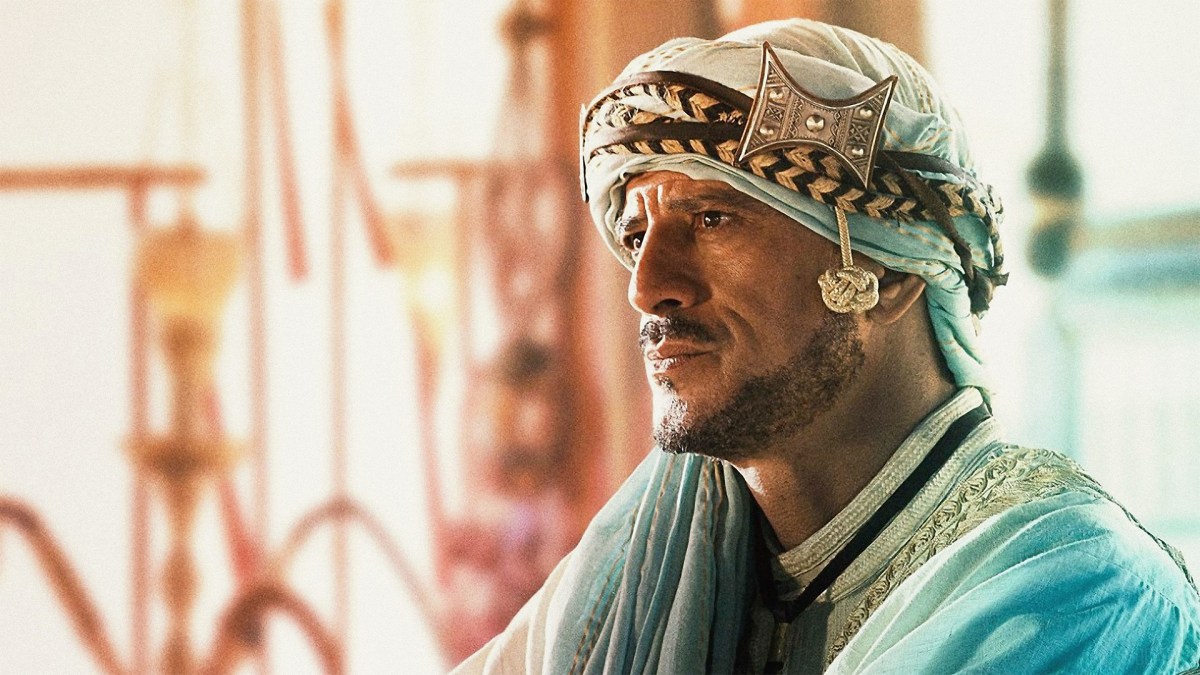
There is perhaps something timely in the cynicism that the John Wick franchise directs towards these structures and institutions, the idea that these laws and rules are ultimately there to serve the interests of those who make them. There is a demonstrable skepticism in modern society about how structures actually serve the interests of those who need them, whether those systems are political, economic, or even legal. There’s a sense the game is rigged by the people making the rules.
The audience understands what it feels like to get scraps from the High Table, as the rich continue to game the system to get richer and the poor continue to get poorer. It’s telling that coin remains the ultimate currency in this ritualized world of assassins. “Now this coin, of course, it does not represent monetary value,” explains Berrada. “It represents the commerce of relationships, a social contract in which you agree to partake. Order and rules.” In such a system, everything is transactional.
There’s a humanism at play within the franchise, suggesting people are fundamentally better outside of these established hierarchies and structures. In Chapter 3, a doctor (Randall Duk Kim) saves Wick’s life by continuing to treat him after his excommunication comes into effect. In Chapter 4, John’s old friend Shimazu Koji (Hiroyuki Sanada) mocks Caine’s (Donnie Yen) belief that debts and friendships can be reduced to these ritualized markers.
[Editor’s Note: Significant spoilers for John Wick: Chapter 4 follow from this point forward.]
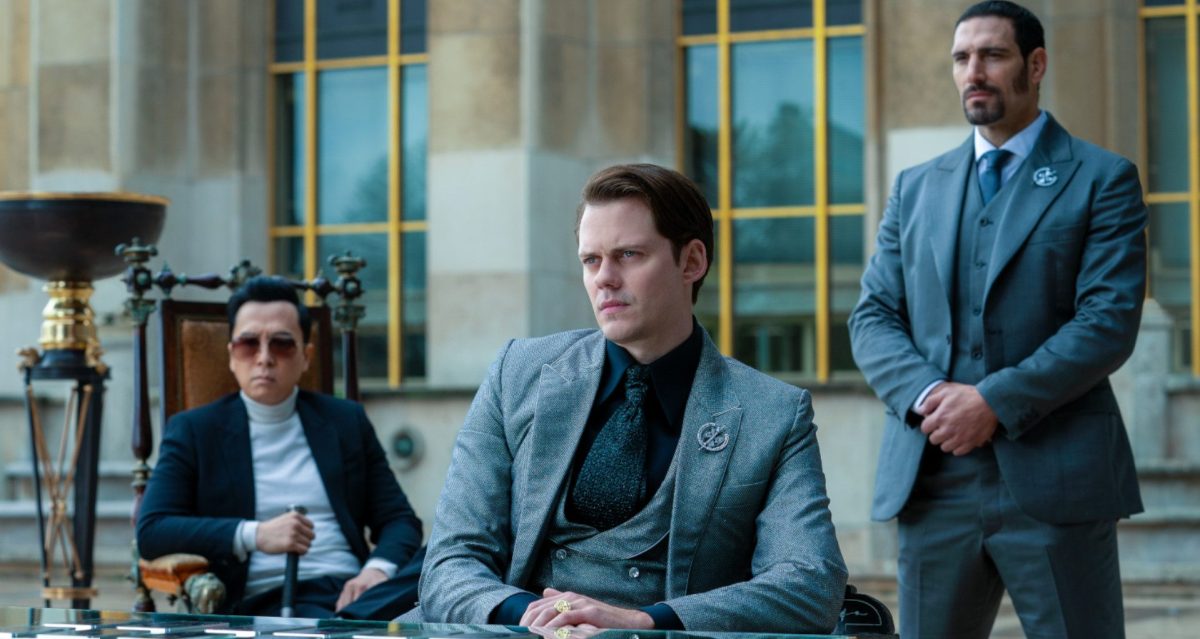
Wick’s triumph in Chapter 4 is rooted in the realization that he needs to weaponize these rules against the people who traditionally exploit them. The Marquis Vincent de Gramont (Bill Skarsgård) pits assassins like Tracker and Caine against one another and against Wick. Despite Winston’s argument, it’s the open contract on Wick that turns New York and Paris into Hobbes’ nightmare of “bellum omnium contra omnes,” the war of all against all.
In Chapter 4, Wick can only claim victory by working with both Caine and Tracker, breaking the rules of the High Table. Wick challenges the Marquis to a duel, a codified and civilized form of violence. The terms are set at the Monument to the French Declaration of the Rights of Man and of the Citizen, a shrine to personal dignity rather than the feudalism suggested by the Marquis’s title. The Marquis nominates Caine as his champion.
It is Caine who walks Wick to the duel, up the 222 steps at Montmartre. When Caine wounds Wick, the Marquis enthusiastically demands the right to “the coup de grâce.” In his excitement, however, he misses the fact that Wick didn’t take his shot. This allows Wick to kill the Marquis within the rules of the duel, granting him his freedom. Of course, it’s more a moral victory than a practical one. Wick bleeds out, watching the sun rise. He wins, as much as it’s possible to win in a broken system.
In the end, the John Wick franchise contends that rules and systems are traps that often bend to the whims of the powerful. There are perhaps worse things than living with the animals.
